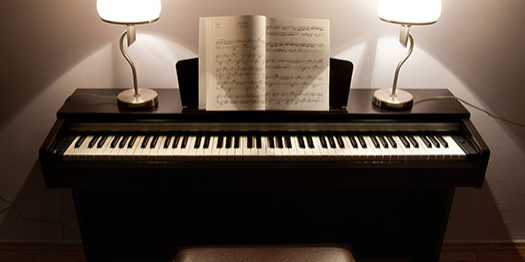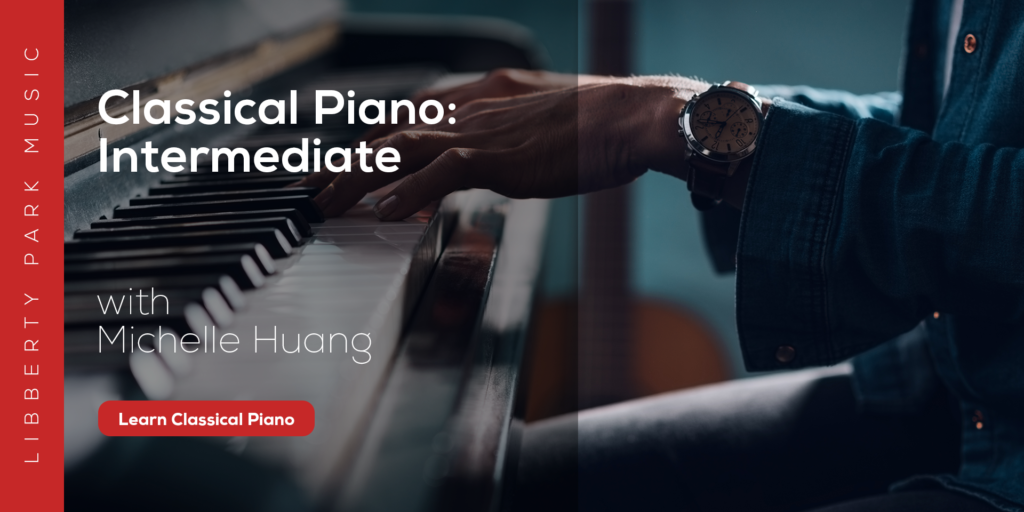
The piano is a fascinating instrument for many of us. Concert pianists make it look so easy to play the piano.
But once we sit down and try it for ourselves, we realize that it's more complicated than it appears.
Keep in mind though, we need to start somewhere. Playing the piano offers us a world of endless opportunities in the music world, plus it comes with mental, physical and emotional benefits.
Regardless of your age, whether you are a parent who is contemplating whether your child should take piano lessons, or you are getting back to playing the music again, this article highlights the benefits of learning the piano.
1. Playing the Piano Makes You Smarter
Studying music and playing the piano has a significant, healthy effect on the overall development of the brain. When you practise, you begin constructing new neural connections and information highways throughout your brain. We have all experienced this without even realizing it.
Think of the first time you tried to do something that was new.
If you stick with this new endeavour through thick and thin, even though you felt weird and clumsy, you'll find that the more effort and practice you consistently put in, the more new neural pathways your brain will create.
Suddenly, everything feels smoother and the task is much easier than the last time! This is because the neural pathways communicate with the rest of your body about correction, which increases brain efficiency.
So how does this process apply to your piano practices?
When you first learn a new song or technique, the pathways will develop slowly. The more you practise, the faster your brain will connect the dots. Think of it as a chain reaction. One neural connection fires then igniting the next one. You can experience this effect from playing the piano as well by making a positive decision early in the day. It can be something as simple as making our bed or eating a healthy breakfast. The initial positive decision creates inspirational momentum to continue to make positive decisions throughout the day.
In addition to making your brain better at communicating, studying the piano also helps prevent the brain from aging. The brain is muscle, and the more we use it, the stronger it gets. Luckily, in the piano world, it is required that you memorize your music for performance. As a result, our memory is dramatically improved, strengthening our overall memory.
2. Playing the piano boosts your concentration levels
The rapid growth in technological developments at the end of the 20th Century and beginning of the 21st Century has created an epidemic that continues to spread: instant gratification.
Do you love pulling out your phone and asking Google or Siri whenever you have a question?
I do too. But millennials and Generation Z are struggling to concentrate and maintain longer attention spans as a result of rapid technological advancement.
Pianists, whether amateur or professional, seem to have a greater quality of dedication, endurance, patience, and concentration. Playing the piano forces us to focus at the moment.
How is this possible? When we first begin practicing, we have to concentrate on acquiring finger independence and developing strong technique that gives complete relaxation throughout the entire body. It helps to first think of the movement we are going to create, and then attempt it.
However, there is one downside. We can take shortcuts by applying tension, and allowing satisfaction out of sloppiness. This will offer faster results in the beginning, but in the long run it will hinder you. In other words, it is possible to have a more instant gratification sensation, but you won’t achieve the results you truly want. Developing fluidity on the piano takes a lot of time, but the level of focus you will acquire in the beginning will help you with everyday life.
Of course there is much more to the piano than just developing technical skill. The study of piano helps fights the effects of instant gratification, and help keep you in a responsible reality.
3. Playing the piano can make you a pro at multitasking and prioritizing
Pianists have very sophisticated levels of fine motor skills. It demands complete independence of our hands, fingers, and even our ears. As a result, precision, accuracy and speed are demanded and developed at a high level.
Pianists multitasks by reading musical notes in two different clefs at the same time.
This is known as the Grand Staff, which consists of the treble clef and bass clef.
Playing these notes in two different clefs demands our multitasking ability. Today’s research even suggests that piano study will enhance motor control in children and adults who struggle with overall motor control.
The roads are flooded with cars, and drivers on their phones! The motor skill, and precision enhancement, acquired when studying the piano might give you the reaction time needed to save your car in avoiding an oncoming collision! It will also help with the inevitable, listening to someone talk while scrolling on your phone. Your reaction time and ability multitask will enhance greatly through the study of the piano.
4. Playing the piano can make you happy and confident
Learning how to play the piano increases our self-confidence tremendously. It is a great instrument to vent our emotions into helping aid us in our overall health and happiness.
Anxious? Play a piece that is relaxing to sooth the mind.
Stressed or angry? Play a piece to help vent this concern or frustration.
Happy? Play a piece that represents this emotion and let the world experience this feeling with you!
Furthermore, the piano will give you a way to be more emotionally available. Knowing to play it also opens up doors to friendships with other musicians. Hang out and listen to or discuss on music you both mutually like, or better yet, meet up to play music. When we surround ourselves with people who have similar interests, it’s hard not to be inspired!
All of these positive effects help mold us into more confident individuals.
Confidence will be noticed both on the stage when performing, and off the stage in everyday life. The piano gives us a purpose in life and goal to strive for; always learning new material and giving us a goal to master. The emotional and social benefits the piano offers can spark motivation to seek more knowledge and social experiences, not only throughout music but in all other areas of life too.
Other Benefits Besides Health Benefits
The piano is often referred to as The Vocabulary of Music.
Music is such a broad topic. There are so many different genres, styles within these genres, compositional and performance philosophies, pedagogical methodologies, and the possibilities of harmonic, rhythmic, and sonic combinations are absolutely endless.
Fortunately, once you truly gain a solid understanding of the piano, you can pretty much do anything you want in music because almost all of music can be played or presented on the piano. The keyboard is laid out in a way that offers us great visuals during the quest of harmonic understanding.
Even if you are a musician of a different instrument, and you don’t have much interest in the piano, learning just your basic chords will have a real positive impact on your musicianship.
Virtually every instrument can be accompanied by the piano, and many pieces written for other instruments have a piano accompaniment. If you play a melody instrument like saxophone, trumpet, or sing, for example, knowing the piano will give you the opportunity to play through the accompaniment of your piece. This will train your ear a lot. You will be able to hear the full piece in context, and you will be able to really study the harmony and theory of the piece.
If you wish to pursue a career in Hip Hop, Pop, or even Film Music, learning the piano will offer you the ability to compose in these styles with greater ease and offer you a much faster workflow.
Many 21st century composers and producers no longer compose with paper, or even with actual instruments. So much music is now written, or programmed if you want to get technical, onto a Digital Audio Workstation. You can sit there and spend a lot of time inputting each note with a mouse, or you can enter the notes with a Midi Controller: essentially a keyboard that plugs into the computer.

Hans Zimmer
The Midi Controller keyboard then becomes any virtual instrument or sound effect that you have. One of today’s most famous composers, Hans Zimmer, utilizes his knowledge of the piano through Digital Audio Workstations for almost everything he does.
All in all, learning the piano will significantly help your growth as musician, regardless of the genre you are striving to master.
Final Thoughts
The study of the piano will truly give you a unique, competitive edge in today's world.
Whether you are studying the piano because you are enticed by the instrument, or just wanting to better yourself all around, learning the piano will extremely beneficial, and you will literally feel the improvement with time.
And let us not forget the piano offers us a healthy, organic response to the age of pharmaceuticals.
As someone who has been educating students for some time now, I must say that the growth in pianists is truly remarkable.






The best part of your blog is when you said that playing the piano can give you the confidence that you need which can be noticed when you’re performing. Actually, I have been dealing with stage fright since I was young. It’s my job to present projects to the crowd, so I’m looking for a way that will help me to improve my self-confidence when I’m in front of a lot of people.